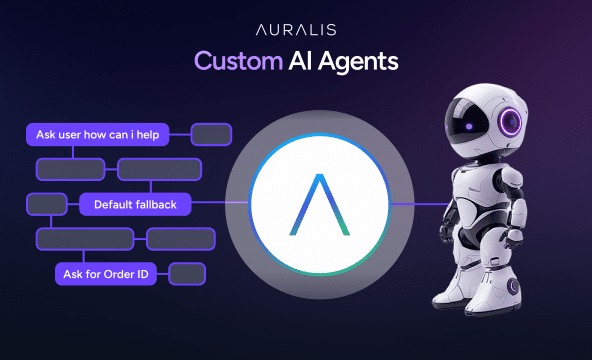AI in customer workflows
AI in customer workflows is revolutionizing how businesses streamline processes, enhance efficiency, and improve customer experiences. By embedding artificial intelligence into various stages of customer interaction, companies can automate repetitive tasks, provide personalized solutions, and ensure seamless collaboration between teams and customers.
A significant advantage of integrating AI into customer workflows is task automation. Routine activities such as data entry, scheduling, ticket routing, and follow-ups can be managed by AI-powered tools, allowing human teams to focus on higher-value tasks. For example, AI can prioritize support tickets based on urgency or customer sentiment, ensuring critical issues are addressed promptly while improving overall workflow efficiency.
AI also enables personalized customer journeys within workflows. By analyzing customer data and interaction history, AI tools can deliver tailored recommendations, anticipate needs, and guide customers through processes in real time. For instance, during a product purchase, AI can suggest complementary items or provide step-by-step assistance for completing complex forms, enhancing satisfaction, and reducing drop-offs.
Collaboration across teams becomes more effective with AI-driven customer workflows. AI can act as a central hub for communication, ensuring that sales, support, and marketing teams have access to consistent and up-to-date customer information. This reduces delays, eliminates redundant tasks, and ensures a cohesive experience for customers.
AI in customer workflows also excels in proactive engagement. By monitoring customer behavior and identifying patterns, AI can predict potential issues or opportunities. For example, it can alert support teams about potential churn risks or recommend upsell opportunities to sales teams, enabling timely and impactful interventions.
Additionally, AI-driven insights play a pivotal role in optimizing workflows. By analyzing performance data, AI can identify bottlenecks, suggest process improvements, and provide actionable recommendations for achieving better outcomes. These insights allow businesses to refine their operations continuously and stay ahead of customer expectations.
For businesses handling multi-channel interactions, AI ensures consistency across touchpoints. Whether customers are engaging through chat, email, social media, or phone, AI integrates these channels into a unified workflow, providing a seamless and coherent experience.
In summary, AI in customer workflows transforms traditional processes by automating tasks, personalizing interactions, and driving collaboration. Its ability to enhance efficiency, predict needs, and deliver insights makes it an invaluable tool for businesses seeking to create streamlined, customer-centric operations.

- Articles
-
 Amy
Amy
- 7 min read
